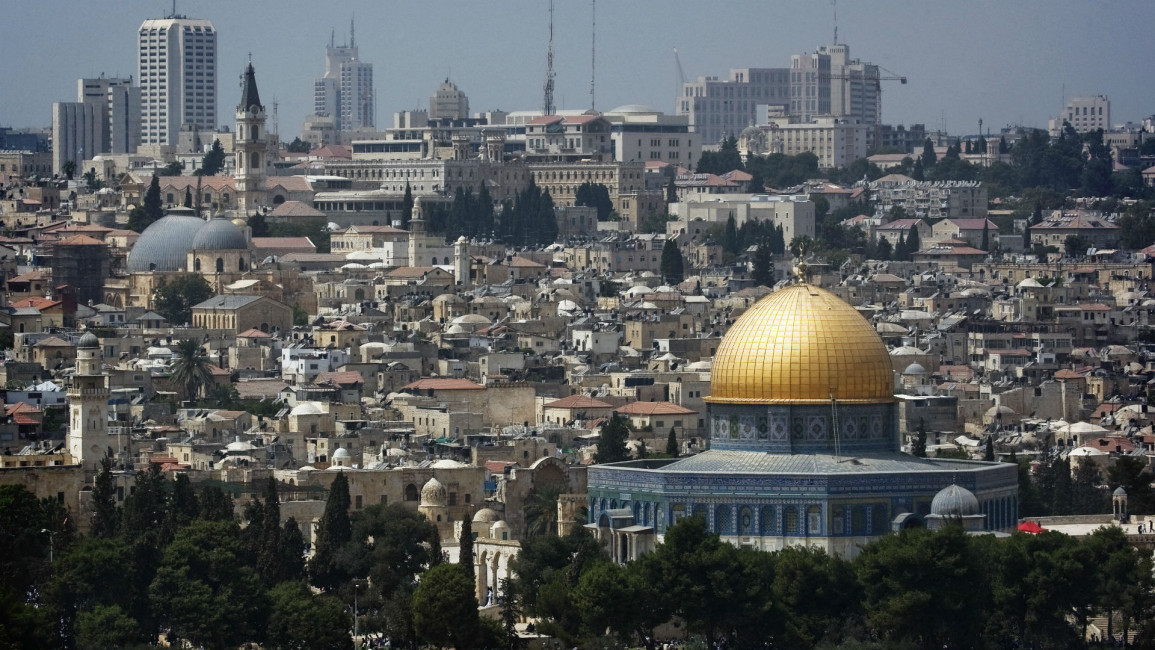At least six states considering moving embassies: Netanyahu
"At least half a dozen” nations are analysing the move, just weeks before the US Embassy is due to relocate to Jerusalem from Tel Aviv.
"I am pleased to say that there are at least half a dozen countries that are currently talking seriously to us about moving their embassies to Jerusalem," Netanyahu told foreign diplomats at a reception in Jerusalem celebrating the 70th anniversary of that declaration.
The first ten embassies to relocate to Jerusalem would receive "preferential treatment," he added without going into detail.
US President Donald Trump's decision in December to transfer the US embassy to the disputed city has drawn widespread condemnation, with critics saying it damages hopes for a negotiated Middle East peace.
Last month, authorities in Paraguay and Honduras said they are ready "in principle" to proceed with the move, state-run Army Radio reported.
But a senior Israeli diplomatic source said that the Latin American countries have demanded that Netanyahu make state visits to them before they greenlight the relocation.
The plan calls for mutual recognition by the states of Israel and Palestine based on 1967 borders, and formation of "an international multilateral mechanism" to assist the two parties in resolving all final status issues and implementing them within a set time frame.
The White House plans to open its new facility in Jerusalem on May 14, coinciding with the 70th anniversary of Israel's creation.
Israel claims all of Jerusalem as its capital, while the Palestinians see the eastern sector as the capital of their future state.
The international consensus has long been that the city's status should be settled as part of a two-state peace deal between Israel and the Palestinians.
Only seven small countries - including Guatemala and Honduras - sided with the United States and Israel on a non-binding December 21 UN General Assembly resolution rejecting Trump's decision to recognise Jerusalem as Israel's capital.
Last month, Arab foreign ministers at a meeting of the Arab League in Cairo insisted that Jerusalem must be the capital of a future Palestinian state.
In their final statement, the ministers endorsed a peace plan presented by Palestinian President Mahmoud Abbas to the UN Security Council in February and his call for an international peace conference by mid-2018 with the key goals of full UN membership for the state of Palestine and a timeframe for a two-state solution.


![Minnesota Tim Walz is working to court Muslim voters. [Getty]](/sites/default/files/styles/image_684x385/public/2169747529.jpeg?h=a5f2f23a&itok=b63Wif2V)




![Debris near Rafic Hariri International Airport [Getty]](/sites/default/files/styles/image_330x185/public/2176162423.jpeg?h=a5f2f23a&itok=MCSK9mkM)
![An Israeli air strike on Jabalia killed teenage journalist Hassan Hamad [Screengrab/X]](/sites/default/files/styles/image_330x185/public/2024-10/hassan%20hamad1.jpg?h=c12e0b96&itok=Rd_dyCVp)
